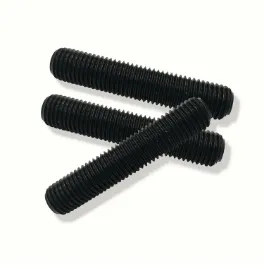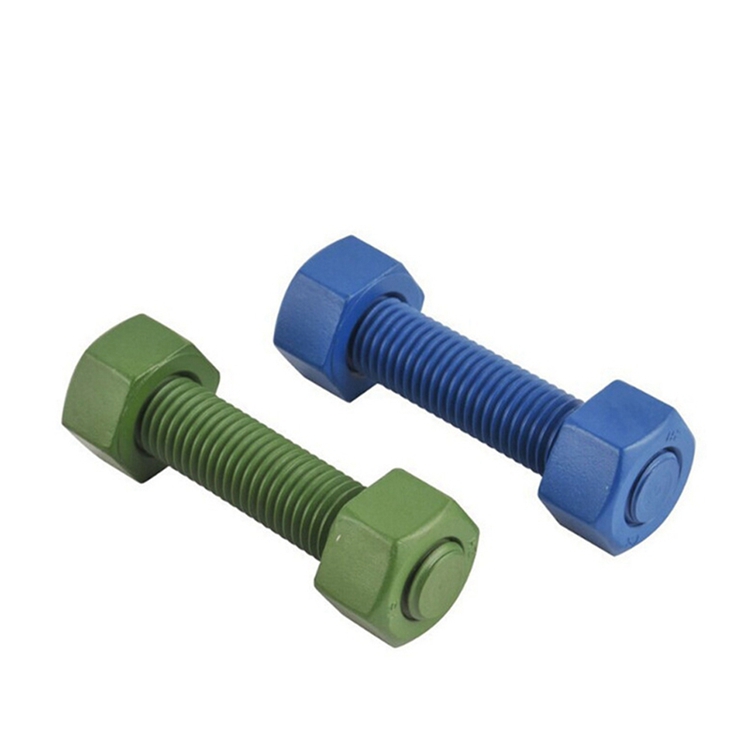screws
Jan . 06, 2025 18:56 Back to list
screws
Whether assembling furniture, tackling a DIY project, or involved in professional construction, understanding screws is essential. Screws are more than mere fasteners; they are integral components determining the strength, stability, and longevity of various structures. With a plethora of options available in the market, choosing the right screw can seem overwhelming. However, by delving into the details of screw types, materials, and applications, one can harness the full potential of these versatile tools.

Screws come in myriad shapes and sizes, each designed for specific applications. Wood screws, for example, are crafted with a sharp, pointed tip to penetrate wood easily, paired with a smooth shank to pull tight against the material. For metalworking, machine screws prevail; they are typically blunt and require pre-threaded holes or nuts for secure fastening. Drywall screws, with their bugle-shaped heads and coarse threads, are specialized for fastening drywall sheets to wood or metal studs, showcasing the diversity in screw functions.
Material composition is a critical factor affecting a screw’s durability and suitability for different environments. Stainless steel screws offer excellent corrosion resistance, ideal for outdoor and marine applications. Brass screws, with their appealing golden hue, are preferred for decorative elements in interior design. For high-stress applications, alloy steel screws provide exceptional tensile strength. Understanding these material properties is essential for selecting a screw that not only performs well but also endures the test of time.

Expertise in using screws extends beyond selection; it also involves proper installation techniques. Over-tightening screws can strip the threads or even damage the materials being fastened, while under-tightening may result in inadequate holding strength. Employing the correct screwdriver or drill bit—matched precisely to the screw head—is paramount for optimal torque application and to prevent cam-out. Pilot holes, particularly in hard materials, ensure ease of insertion and reduce the risk of splitting the material, reflecting an advanced understanding of screw application.
screws
Screw manufacturers continue to innovate, incorporating advanced materials and designs to meet the growing demands of various industries. Self-tapping screws, for example, eliminate the need for pre-drilled holes by cutting their threads as they are driven into the material. This advancement enhances efficiency in production environments. Similarly, screw coatings like zinc plating or galvanization provide additional protection against environmental factors, prolonging the screw's lifespan and maintaining the structural integrity of the assembly.
Ensuring trustworthiness in screw performance also involves adhering to industry standards and certifications. Quality screws are often rated based on their load-bearing capacity and resistance to wear and tear, aspects that informed buyers or contractors will verify. Investing in certified products not only guarantees safety but also aligns with best practices in construction and manufacturing.
Ultimately, the humble screw plays an indispensable role in the mechanics of building and repairing. Its function transcends simplicity; it ensures reliability in countless applications where precision and durability are paramount. By embracing a comprehensive understanding of screws—from selecting the right type and material to implementing proper usage techniques—users can achieve superior results in their projects. As such, the screw stands as a testament to the spirit of innovation and resilience in engineering, a small but mighty ally in the pursuit of excellence in craftsmanship.
Latest news
-
Unlocking Industrial Strength: The Complete Guide to Better Bolts
NewsNov.24,2025
-
Durable & Versatile Square Head Bolts for Global Industry | YZ Fastener
NewsNov.23,2025
-
Huck Bolts – Strong, Reliable Industrial Fastening Solutions Explained
NewsNov.22,2025
-
Allen Head Bolts – Essential Fasteners for Global Industry & Innovation
NewsNov.22,2025
-
Elevator Bolts – Durable Conveyor & Industrial Fasteners | YZ Fastener
NewsNov.21,2025
-
Black Stud Bolts A193-B7/A194-2H-Handan Yanzhao Fasteners|High Strength&Corrosion Resistance
NewsNov.21,2025
